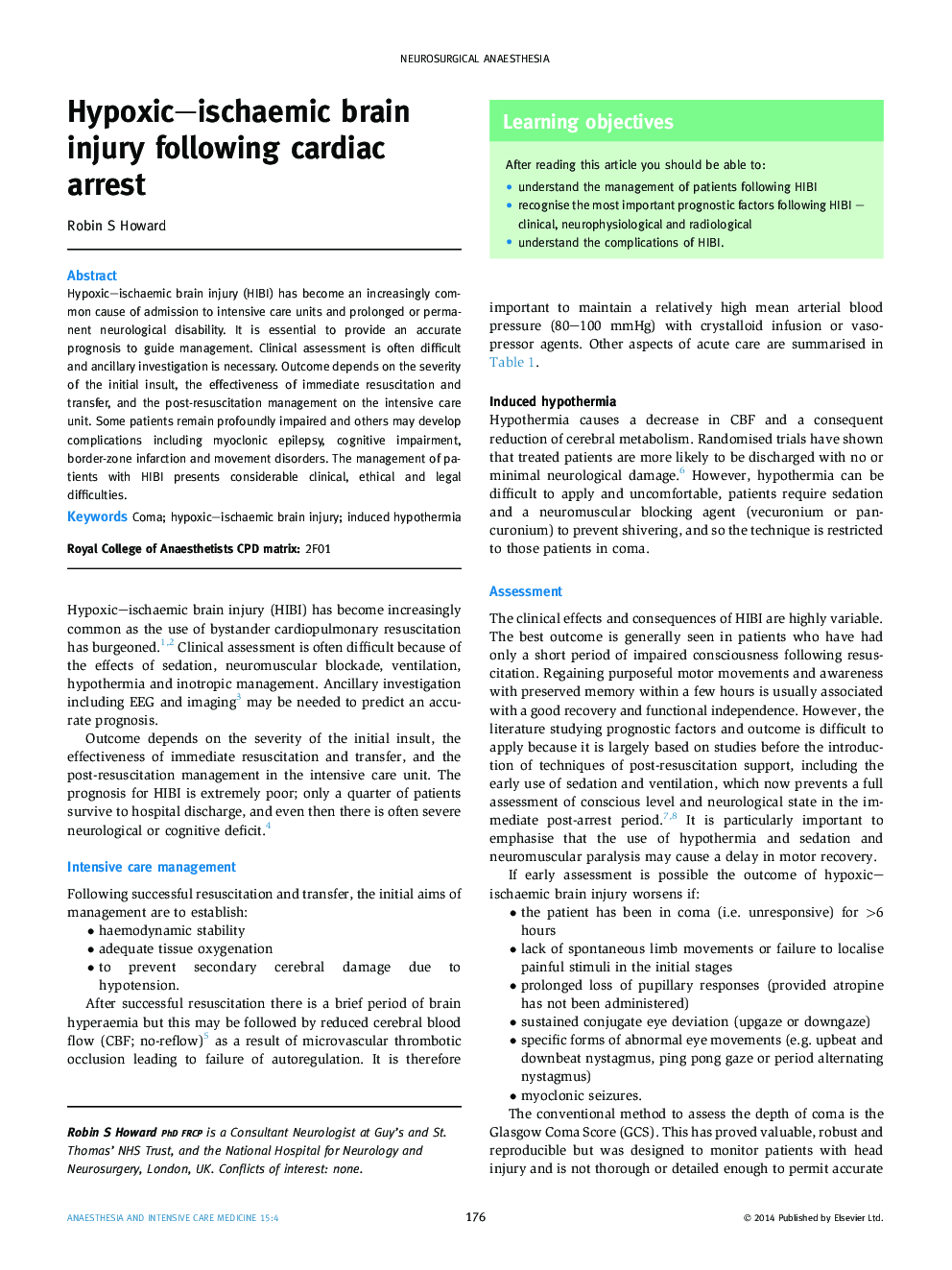| Article ID | Journal | Published Year | Pages | File Type |
|---|---|---|---|---|
| 2742377 | Anaesthesia & Intensive Care Medicine | 2014 | 5 Pages |
Hypoxic–ischaemic brain injury (HIBI) has become an increasingly common cause of admission to intensive care units and prolonged or permanent neurological disability. It is essential to provide an accurate prognosis to guide management. Clinical assessment is often difficult and ancillary investigation is necessary. Outcome depends on the severity of the initial insult, the effectiveness of immediate resuscitation and transfer, and the post-resuscitation management on the intensive care unit. Some patients remain profoundly impaired and others may develop complications including myoclonic epilepsy, cognitive impairment, border-zone infarction and movement disorders. The management of patients with HIBI presents considerable clinical, ethical and legal difficulties.
